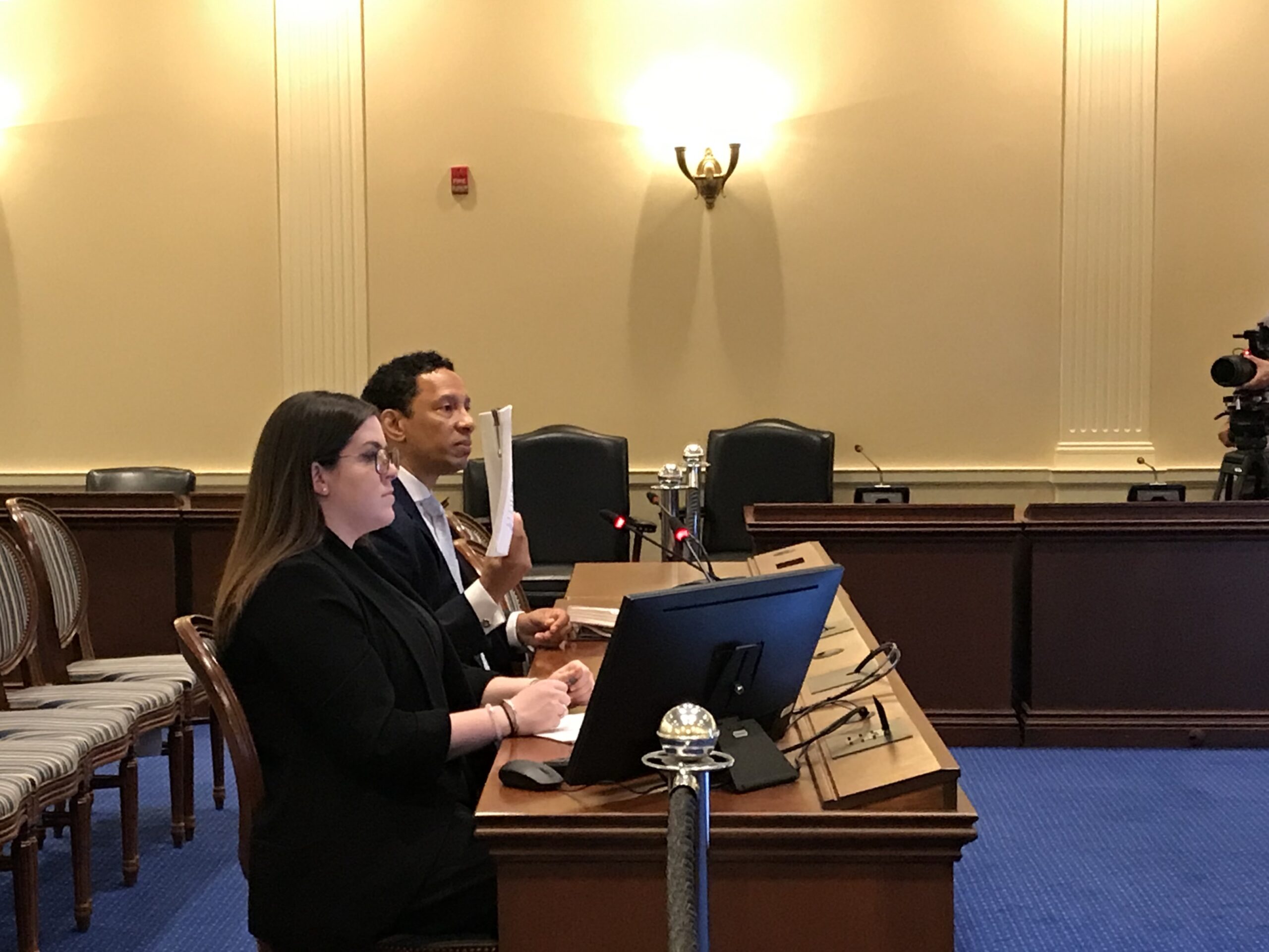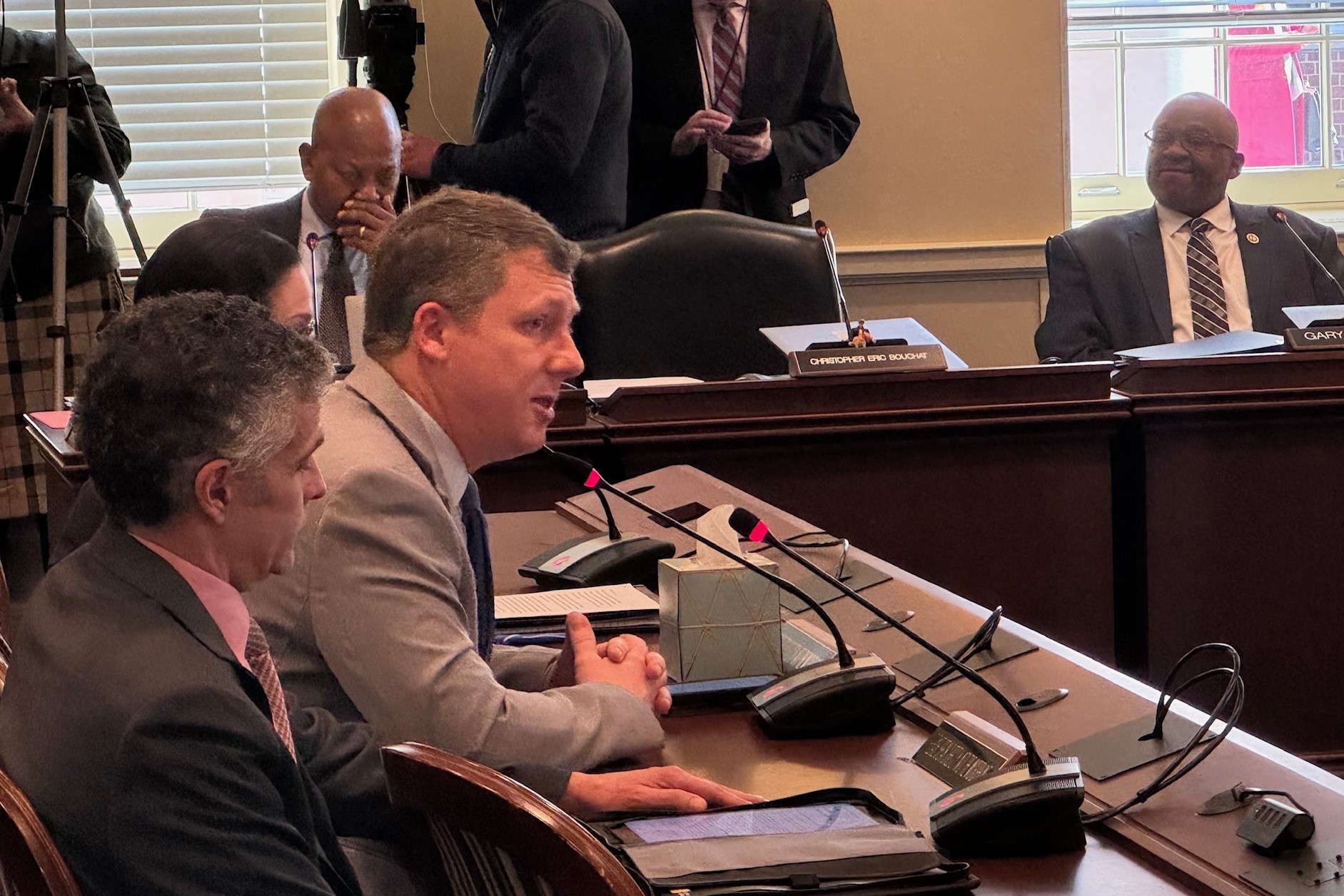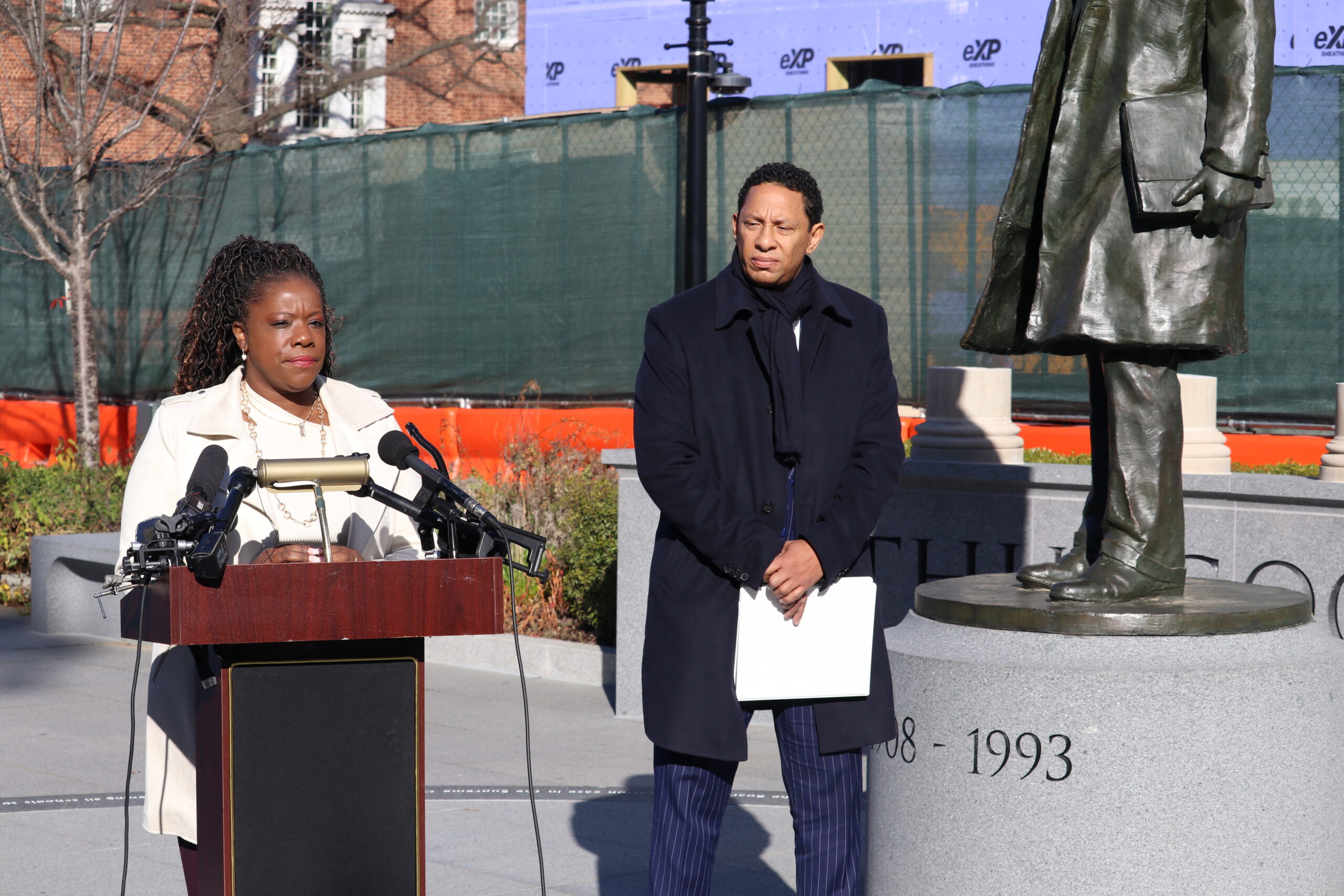Defense Attorney Sickens Member of State Panel With His Tales of Police Corruption

A Baltimore defense attorney’s testimony about failures of the city’s police force and criminal justice system on Tuesday was enough to make a veteran law enforcement officer sick to his stomach.
Defense attorney Ivan J. Bates testified in Annapolis before the Commission to Restore Trust in Policing, a seven-member panel that is undertaking a multi-year investigation of corruption within the Baltimore Police Department. Armed with courtroom and police body camera footage, as well as the internal affairs files of corrupt officers, Bates told the commissioners stories of his clients who had been framed, robbed or unlawfully searched and arrested by police officers in the city, including members of the Gun Trace Task Force who were convicted of crimes.
Bates’ footage and compilation of statistics, along with the personal stories of how officers’ actions affected his clients’ lives for years, brought the work of the commission into stark focus on Tuesday.
“I’m just kind of at a loss. …I spent 23 years of my career in the Baltimore Police Department and some of the stuff you’ve talked about today really makes me sick to my stomach,” commission member Gary McLhinney said after Bates’ presentation. McLhinney is the assistant secretary for the Maryland Department of Public Safety and Correctional services and previously served as the president of the city’s Fraternal Order of Police lodge.
The commission, chaired by retired U.S. District Court Judge Alexander Williams Jr., is continuing fact-finding and will be subpoenaing police records and obtaining information from past and present senior management, including newly appointed Baltimore Police Department Commissioner Michael Harrison. The commission will also be gathering information from rank-and-file officers and holding community meetings in the city of Baltimore this summer.
The commission has retained private counsel from the Baltimore-based law firm Gallagher Evelius and Jones to assist in the investigation.
Bates said he believed the number of cases pursued by the Gun Trace Task Force helped explode the number of shootings and deaths in the city. Nine members of the elite police unit have been convicted or pleaded guilty to corruption that included robbery and extortion, planting evidence and illegal searches and seizures of Baltimoreans.
While in operation, the task force received accolades for its high arrest and seizure numbers, but a close review would have shown cases with serious constitutional and other flaws, Bates said. There were 342 arrests by the Gun Trace Task Force in 2015, but the conviction rate was around 34 percent, he added.
Bates said his office reviewed the case files of 100 random clients and found that 24 of them had no criminal history or criminal interaction until they were stopped by the Gun Trace Task Force, their records blemished forever.
“It’s almost as if ‘Did you send him down that path?’ There’s enough barriers right now to young black men in Baltimore City. We don’t need this,” Bates said.
He told the commission that too many levels of the criminal justice system failed to see the value of the people involved.
Bates recommended a number of changes to state law, including that police internal affairs files that call into question officers’ truthfulness or document prior bad acts of an officer should be provided as exculpatory evidence to defense attorneys early in cases. Access to the files should also be less cumbersome and not case-specific.
Right now, if a defense attorney gains access to an officer’s internal affairs file, they must sign an anti-disclosure agreement, which means their research in one case can’t be used in a different defendant’s case.
Bates said the BPD should also publish more data about officers’ activities, including members of the police force who are arrested, which officers are applying for search warrants and which officers are using an “exigent circumstance” explanation for conducting searches without a warrant.
Bates, who ran unsuccessfully for Baltimore City state’s attorney in 2018, also suggested that the state’s attorney’s office should improve training for new prosecutors, particularly in identifying police misconduct and releasing exculpatory evidence. The city should undertake a broader investigation of any and all officers who were connected in any way with the Gun Trace Task Force.
Finally, Bates called for establishment of a compensation fund for people victimized by the Gun Trace Task Force and advocated allowing cameras in courtrooms to promote transparency.
“The corruption in the criminal justice system in Baltimore is systemic. There’s a lot of blame to go around. There’s no sense in blaming everybody; we just need to fix it,” Bates said. “Baltimore is a city right now that’s out of control in terms of crime and the murders. And I do believe that the actions of the Gun Trace Task Force and other officers have contributed greatly to the murders and the violence.”
Commission member James N. Robey, a former state senator and ex-Howard County police chief who also worked for a police accreditation agency, said he thinks “there’s a little stink on this whole system” that harms good police officers everywhere and needs to be addressed.
“I don’t think I’ve ever heard or seen anything this egregious,” Robey said.
After the open meeting, the commission met in closed session to discuss personnel and investigative matters.




 Creative Commons Attribution
Creative Commons Attribution